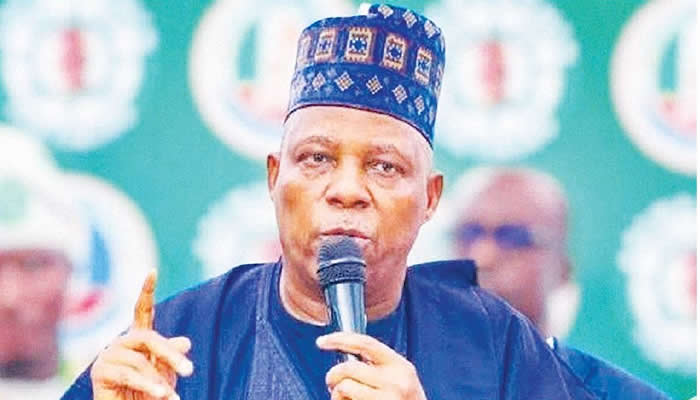At a recently held Cybersecurity Conference in Abuja, Vice President of Nigeria, Senator Kashim Shettima, and various stakeholders underscored the vital role of cybersecurity in propelling the nation’s economic development. The conference was organized by the Central Securities Clearing System PLC and the Office of the National Security Adviser, bringing together experts from military, technology, finance, and governmental sectors. During the event, discussions emphasized the pressing need for enhanced collaboration between public and private sectors while advocating for the development of human capital that is adept in using AI-driven tools to navigate an increasingly complex cyber environment. This collaborative approach aims to create a robust framework that can withstand and counter escalating cyber threats.
The conference focused on the rapidly evolving cyber threat landscape and the essential integration of AI-powered solutions with resilient infrastructure to safeguard Nigeria’s financial system and its critical assets. In his keynote address, Vice President Shettima themed “Cybersecurity: Synergising AI and Infrastructure,” indicated that cybersecurity is not merely a technical issue but a foundational element for economic stability and growth in Nigeria. He reiterated the government’s commitment to enhancing cybersecurity initiatives and harnessing AI to protect national infrastructure, underscoring that a secure digital environment encourages investment and innovation. His recognition of the efforts made by the National Security Adviser and his team reflects the government’s proactive stance towards fostering a safer digital ecosystem.
In the initial remarks, National Cybersecurity Coordinator Ahmad Abubakar discussed the dual-edged nature of artificial intelligence in the realm of cybersecurity. He highlighted that while AI possesses the potential to significantly bolster Nigeria’s cybersecurity capabilities, it simultaneously exposes vulnerabilities. As interconnected systems become more pervasive, the risks associated with cyber threats also escalate. Abubakar emphasized that adversaries no longer need extensive technical know-how to initiate destructive cyber-attacks. However, he remained optimistic about the advantages AI presents in predicting, detecting, and neutralizing threats, thereby suggesting a balanced approach to leveraging AI in enhancing national security.
Further insights came from Temi Popoola, the Chairman of the Board of Directors of CSCS Plc, who underlined the critical need for aligning artificial intelligence with infrastructure to mitigate the impact of cyberattacks. He emphasized that a single cyber incident could potentially disrupt entire nations, particularly stressing that for financial institutions like CSCS, protecting data is crucial to maintaining trust in the financial system. Popoola mentioned the company’s proactive initiatives, including investments in innovative technologies such as blockchain and quantum-resistant cryptography, as well as collaborations with AI research entities to stay one step ahead of emerging cyber threats.
Haruna Jalo-Waziri, the CEO of CSCS Plc, reiterated the necessity for robust cybersecurity measures, especially considering the significant financial implications that cybercrime poses on the global economy. As the central securities depository for the Nigerian capital market, CSCS is particularly vulnerable to cyberattacks, making effective cybersecurity not just a precaution but an urgent necessity. The emphasis on developing comprehensive cybersecurity frameworks and investing in advanced technologies reflects a growing recognition of the financial and operational stakes involved, reinforcing the imperative for ongoing attention and resource allocation in this domain.
In summary, the Cybersecurity Conference served as a critical platform for dialogue among stakeholders aimed at enhancing Nigeria’s cybersecurity framework. The insights shared by Vice President Shettima, Ahmad Abubakar, Temi Popoola, and Haruna Jalo-Waziri point towards a united recognition of the intersection between cybersecurity and economic growth. By fostering collaboration between public institutions and private enterprises, alongside investing in human capital and cutting-edge technologies, Nigeria can cultivate a more secure digital environment – one that promotes economic development, protects critical infrastructure, and ultimately strengthens the nation’s resilience against sophisticated cyber threats.


